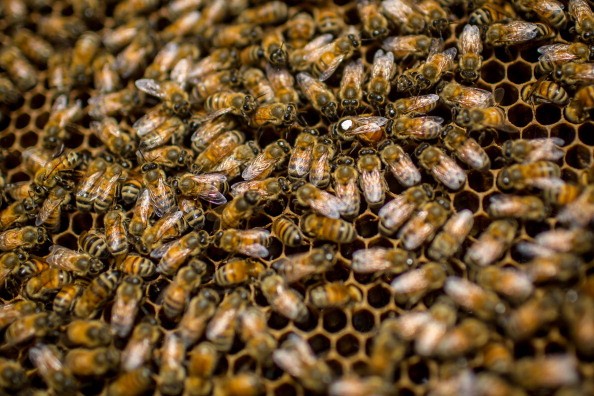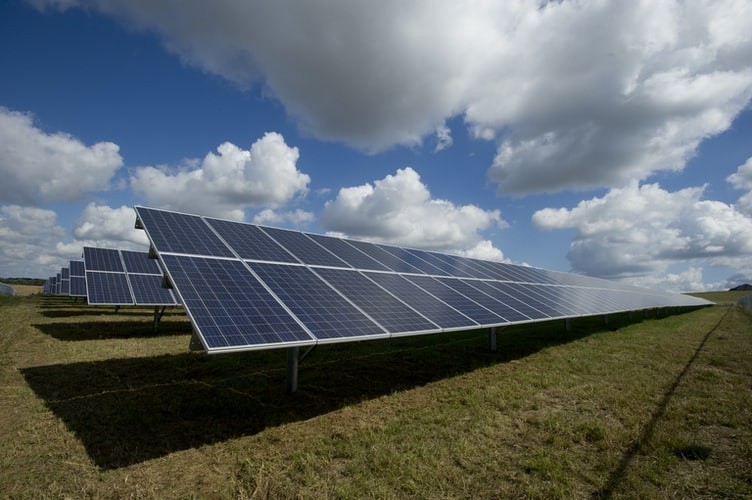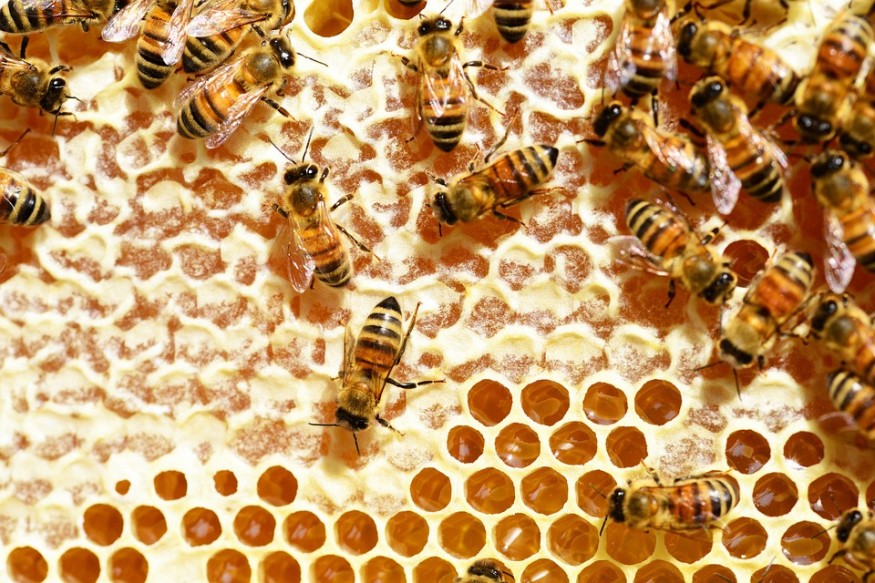According to recent research, deploying thousands of honeybee hives on solar parks throughout the country may improve the value of UK agriculture by millions of pounds every year.

Scientists warn, however, that the benefits of maintaining solar parks for wild pollinators over honeybees should be prioritized when possible and examined site by site.
A Unique Study

A team of academics from Lancaster University and the University of Reading has calculated the potential economic advantages and costs of putting honeybee hives on solar farms across the United Kingdom for the first time.
As their contribution to energy generation grows, solar parks play an increasingly significant part in our nation's transition to carbon zero.
On the other hand, solar parks take up much space, and as more parks are built to fulfill renewable energy demand, it's vital to consider how they might be used for other environmental or economic purposes.
Related Article : China to Make Solar Energy Cheap and Reliable by 2060
Placing Honeybees on Solar Parks
Placing honeybee colonies on solar farms is one option. Many solar parks are located in locations where many wild pollinator habitats have been destroyed or damaged due to intensive agriculture. Honeybee hives supply ready-made armies that pollinate crops in the surrounding area, increasing agricultural yield. Although honeybee colonies have been utilized on solar farms, the economic benefits have remained unclear until now.
The researchers utilized comprehensive land cover maps from the Centre of Ecology and Hydrology to figure out where solar parks are and crop distribution and rotations, honeybee colonies, crop pollination requirements, and crop values.
They also took into account the expense of setting up and maintaining honeybee colonies on the solar farms.
Increasing Yields
Using crop distribution patterns from 2017, researchers discovered that putting honeybees on solar farms might have increased agricultural yields by £5.9 million that year.
The research looked at field crops like field beans, linseed, and oilseed, top fruits like apples and pears, including cider and perry types, and soft fruits like strawberries, raspberries, and blackcurrants.
Because oilseed is so commonly farmed in England, the data revealed that it might benefit the most from installed honeybee colonies. However, soft fruits, particularly strawberries, would receive the largest economic gain per land area because of their high market value and relative reliance on honeybee pollination.
Agricultural Benefits
Honeybees on solar parks may increase field crop yields by £2.6 million, top fruit yields by £1.3 million, and soft fruit yields by £1.9 million, according to 2017 statistics.
The data revealed geographical trends, with the greatest levels seen in the east and south of England, where more oilseed and soft fruit crops are produced.
They also discovered that if all UK crops were cultivated within a 1.5km honeybee foraging radius of solar parks throughout the UK, the value of those agricultural yields would increase by £80 million per year - although experts acknowledge that this scenario is improbable due to other considerations.
Given these findings, soft fruit cultivation would need to be prioritized inside honeybee foraging zones of 1.5 km surrounding solar parks if UK agriculture wished to maximize the economic benefits of putting honeybees on solar parks.
However, the researchers are quick to point out that the appropriateness of putting honeybee colonies atop solar parks must be determined for each site. This is since not all climates and soil types are suited for all crops, and individual farmers have preferences for what and where they produce. In addition, because different yields have varied pollination requirements, the study team's findings cannot be applied to all crop kinds and variations.
Furthermore, great care must be taken to ensure that honeybees do not compete with natural pollinator species that have already established themselves. The researchers also point out that promoting wild pollinators rather than constructing honeybee colonies might bring better ecological advantages.
A Noble Pursuit

Dr. Alona Armstrong, the principal author of the study and Senior Lecturer at Lancaster University, said: "Managing solar parks for honeybees can improve agricultural yields and, as a result, financial benefits. However, considering the possible ramifications for wild pollinators and the advantages of managing sites for biodiversity more broadly, it is vital to assess appropriateness on a site-by-site basis."
The study results will be used to influence energy legislation, future business cases for solar parks, sustainable investments, and decisions regarding incorporating honeybee colonies into energy and land management.
For more news about making the environment sustainable, don't forget to follow Nature World News!
© 2026 NatureWorldNews.com All rights reserved. Do not reproduce without permission.





